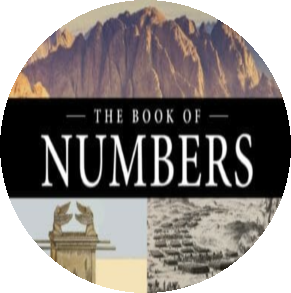
The Book Of Numbers
As it does for the rest of the Pentateuch, universal Jewish and Christian tradition attributes the authorship of the book of Numbers to Moses. Moses is the central figure within the book, and in at least two instances Numbers mentions him recording events by the Lord’s commands (Numbers 33:2; 36:13).
The name “Numbers” is a translation of Arithmoi, from the Greek Septuagint, titled thus because the book contains many statistics, population counts, tribal and priestly figures, and other numerical data. The Hebrew name comes from the first sentence of the book and means “in the desert of ”; it is perhaps an even more accurate description of the book’s content, which follows the Israelites through almost forty years of wandering in the desert.
The events of the book began in the second year after the Israelites departed Egypt, as they camped at Mount Sinai around 1444 BC (Numbers 1:1). The narrative ends thirty-eight years later in the plains of Moab by the Jordan opposite Jericho in 1406 BC. Numbers records the people’s long wandering in the desert of Sinai, their time at the oasis of Kadesh-barnea, and their eventual arrival at the banks of the Jordan River across from the Promised Land.
The Lord directed the message of Numbers toward the younger generation, children of the former slaves who escaped through the Red Sea. Except for Joshua, Caleb, and Moses, the older generation—everyone twenty years old or older at the time of the first census—died before the completion of Numbers, due to their disobedience and disbelief (Numbers 14:22–30). Moses completed the book before his death (Deuteronomy 31:24).







 Follow
Follow

